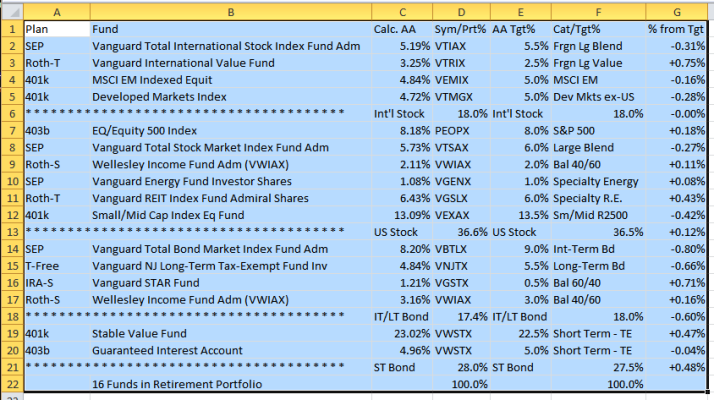MikeyInMarin
Dryer sheet wannabe
- Joined
- Mar 5, 2016
- Messages
- 24
I know that I am not comfortable/qualified to do my own market timing.
I understand what the concept of MPT is; what surprised me is that even the experts are all over the map. I looked at Fidelity vs Vanguard target-dated indexed-fund portfolios (e.g., 2025). I also tried out the Financial Guard mod conservative indexed-ETF AA. They are all very different AAs:
FG is 35% bonds & 12% cash, 33% stock, 20% alternate (REIT, commodities)
Vanguard is 67% stocks & 33% bonds (no cash)
Fidelity throws in commodities & has lower 10-yr returns
I don't understand why:
1) Do the target-dated funds (or an advisor like FG) implicitly do market timing without saying so?
2) None of them explain their reasoning; they just give an AA. How am I to choose amongst them?
Thanks
I understand what the concept of MPT is; what surprised me is that even the experts are all over the map. I looked at Fidelity vs Vanguard target-dated indexed-fund portfolios (e.g., 2025). I also tried out the Financial Guard mod conservative indexed-ETF AA. They are all very different AAs:
FG is 35% bonds & 12% cash, 33% stock, 20% alternate (REIT, commodities)
Vanguard is 67% stocks & 33% bonds (no cash)
Fidelity throws in commodities & has lower 10-yr returns
I don't understand why:
1) Do the target-dated funds (or an advisor like FG) implicitly do market timing without saying so?
2) None of them explain their reasoning; they just give an AA. How am I to choose amongst them?
Thanks

